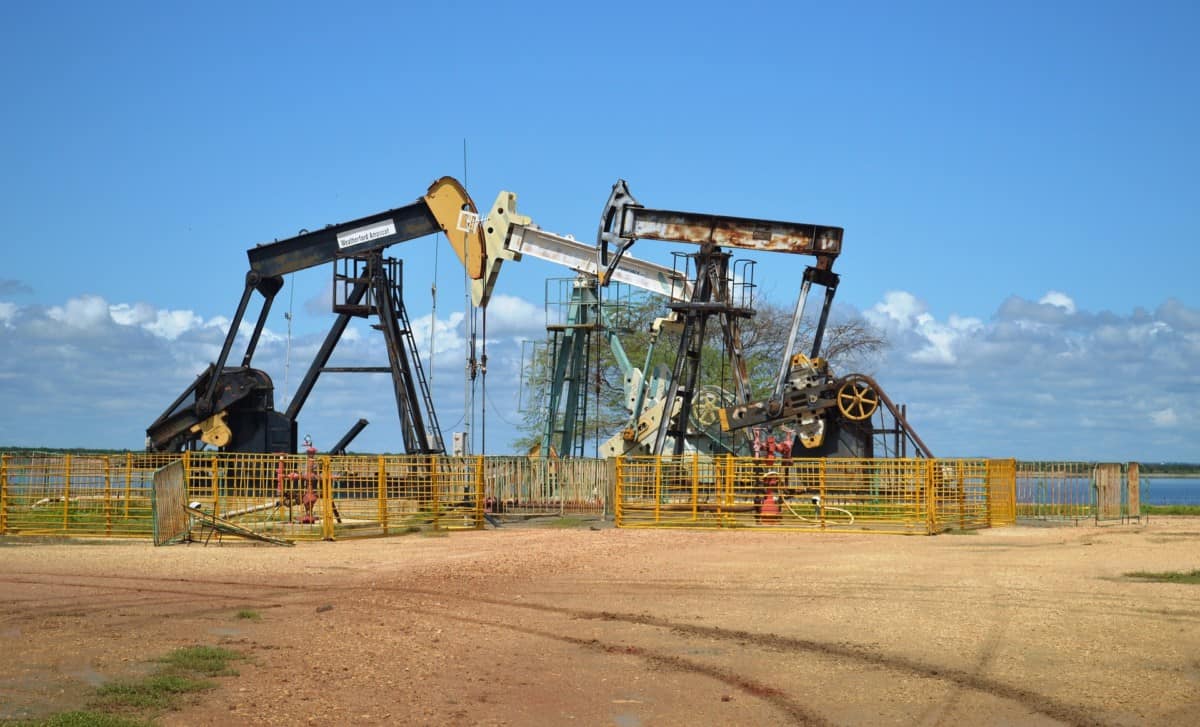Last night whilst out for a meal I overheard a young couple having a discussion, one of them asked why are fossils fuels considered a nonrenewable resource? This came as a bit of a shock as I simply thought that everybody knew the answer to this question, but obviously not. So let’s find out are fossils fuels renewable or nonrenewable.
Why are fossils fuels considered a nonrenewable resource
Fossils fuels are considered nonrenewable resources due to the fact that we humans will use all the resources faster than the time it takes to replenish them.
What is Fossils Fuels?
Fossils fuels are formed over millions of years from the remains of dead organisms. Fossils fuels are the main source of energy worldwide and at present, they account for about 80 percent of our energy sources. When these fossils fuels are burnt they produce Carbon Dioxide which is a major contributor of greenhouse gases affecting the Ozone layer.
For this reason may Governments around the world are looking at alternative sources of energy such as Solar power, wind power and hydroelectric power, these are known as renewable sources of energy, alternative sources of energy or as green energy.
How many fossils fuels are there?
There are three main fossils fuels which we burn for a source of energy; these are natural gas, coal and crude oil all of which can be found in most countries across the world. The largest amounts of coal deposits are usually found in the United States, Russia and China, whilst the majority of crude oil and natural gas are to be found in the Middle East.
Crude oil and natural gas are found deep below the earth’s surface, usually at depths greater than a mile down, therefore making them harder to locate and extract. Once located and drilled they can be transported from offshore rigs to lad via pipelines and refined into fuels such as petrol and diesel etc.
Coal is a little easier to be found at about two or three hundred feet below ground and is much more plentiful, therefore cheaper to purchase.
What are the advantages of fossil fuels?
The modern generation find it difficult to talk about the advantages of fossil fuels as they are correctly concerned about global warming and the environment for themselves and their children. We’re all starting to view renewable energy sources as the way forward. We are starting more and more to harness and utilise the sun’s rays and wind power.
Only large corporate businesses making large amounts of money talk unsurprisingly about the advantages of fossil fuels, so what are they? Let’s have a look at a few advantages.
Safe to transport
As mentioned above gas and oil can be transported large distances relatively safely, either above or below ground utilising a pipework system. Once transferred into containers they then, like coal can be transferred either by trucks or by rail quite inexpensively.
A cheap source of energy
Some of the cheapest forms of energy are still fossil fuels, grated they are expensive initially to mine and refine. Due to the continuing development of technology, machines have become more efficient at extracting fossil fuels from the ground making them more cost effective.
Abundance
The availability of fossil fuels as mentioned earlier can be found in almost every country in the world in vast amounts. This means that Governments or businesses can extract these fossil fuels quite easily and cheaply to serve their countries energy needs either for industry or to supply homes with energy.
High calorific value
What does this mean? Calorific value is the amount of energy contained in any fuel. To ascertain a calorific value a given amount of fuel is burnt to measure the energy produced. The more efficient the fuel is the higher the value.
Fossil fuels are still best at producing energy when burnt, so no surprise that they are still widely used. Renewable sources of energy are a long way off for developing countries due to the expense.
How much fossil fuels do we use
In 2018, the United States consumed an average of about 20.5 million barrels of petroleum per day, or a total of about 7.5 billion barrels of petroleum products. Globally it is predicted that we will utilise 100million barrels per day in 2020.
What are fossils fuels used for?
We all think of crude oil as the main source of all our energy providing fuels, such as petrol, diesel and heating oil. Burning petroleum is widely used to produce electricity which powers appliances in our homes and workspaces; it illuminates the streets at night too.
Plastic is a by-product of crude oil and is used every day by millions of us, it can be found in items such as packaging, toys, dresses, tires, heart valves, tooth paste, lipstick, artificial limbs, dentures and anaesthetics. Source
Coal is burnt either to heat our homes or in industry to produce electricity or steel for example, but its by-products such as gypsum and slag can be sold for use in cement and roofing materials respectively.
How long will fossil fuels last?
Oil
Our known oil deposits could run out in just over 53 years.
Gas
Our known gas reserves only give us just 52 years left.
Coal
Our known coal deposits could be gone in 150 years.
Why are Fossils Fuels Bad for the Environment?
Fossil fuels are one of the pillars in the global economy due to all the benefits that it offers to the human beings in almost every possible industry around the world, and for that reason, it is the most used fuel without any doubt.
Thanks to these fuels, we can obtain a lot of power when they are burned in specific facilities in different countries (most specifically in the ones that are living thanks to the income of these fuels) to later use it for the production of electricity by burning coal, providing a very reliable heating source in cold countries, and most importantly, they can be used in the public transports in form of gasoline or diesel, providing a 99% of the energy for cars around the world.
Sadly, nothing is perfect, and in the case of fossil fuels, they are incredibly dangerous for the environment for a lot of reasons that are going to be explained.
Why are Fossils Fuels Bad for the Environment?
Sure, they are incredibly useful for us, however, they have a major disadvantage… fossil fuels are one of the leading sources of global warming pollution in the world! This means that it will kill us slowly in the future if we don’t take any measures to reduce the damage that it produces to the world.
There are multiple reasons why these fuels are bad for the environment, the great majority of those reasons are related to how it is extracted in nature because the workers use chemicals on the ground or even destroy a lot of plants and trees to pass the required machines for the process.
Check this list of facts about the fossil fuels industry to learn more about how big is the produced damage to the environment around the world:
1- Fossil Fuels are wrecking our Climate:
Like has been said before, one of the principals responsible for the current climate crisis that exists in the world is fossil fuels.
When someone burns coal, oil or gas, this will cause a great impact on the climate because the amount of heat and smoke produced will rise to the atmosphere, creating a lot of severe damage to practically every place of the world.
If we are not careful with this amount of production and extraction of fuels around the world, with the passing of the years, we will face big problems like heat waves, heavy precipitations, dangerous rise of the sea level, polar melting which will cause a lot of deaths to the near animals, and more importantly, it will expand gradually the health risk in illness related to the skin.
2- Fossil Fuels Companies produce a Deadly Amount of Air Pollution:
Not only it releases great gas emissions to the environment, but also, burning these fuels can generate some localized air pollutants like soot (in a fine particulate matter, or P.M 2.5) and smog (it causes a lot of damage to the ozone) which leads to more heatwaves and dangerous rise of temperatures in some places of the world and also, it increases the possibility of getting some illness like lung cancer, strokes, and heart diseases.
The World Health Organization estimates that ambient exposure of the previous pollutants will cause millions of death per year, so, to avoid this, the fossil fuels companies should take some measures and limitations to their production, however, that is not so easy because it can reduce significantly the economy around the globe.
3- It’s not only Air Pollutions, but Fossil Fuels also releases a lot of Water Pollutions as Well!
With the pass of the years and thanks to some companies greedy behavior, explosions and oil spills have wreaked havoc and destruction in the water around the world, affecting not only the fishes but also the communities that are near to it! Sadly, there is not a safe way to extract fossil fuels in these days, and this can cause minor damages in most cases.
However, this has been changing at a fast pace, contaminating not only the environment but also the water, which can lead to serious diseases to the people who drink this water that has been infected thanks to a coal mining process that leaves the zone with some coal ash that later reach the water of near communities and after that, the people will suffer serious consequences thanks to the negligent company that doesn’t care about the life of plants and human beings, only for their money and production.
Recent Posts
Can Fusion Put Brakes on Climate Change Firstly, in the face of the accelerating climate crisis, the search for sustainable, carbon-free energy sources has never been more urgent. Among the myriad...
The Dangers of Nuclear Energy Firstly, In the pursuit of advancing our energy systems, nuclear energy has emerged as a formidable source. Promising to meet the insatiable demand for power while...



